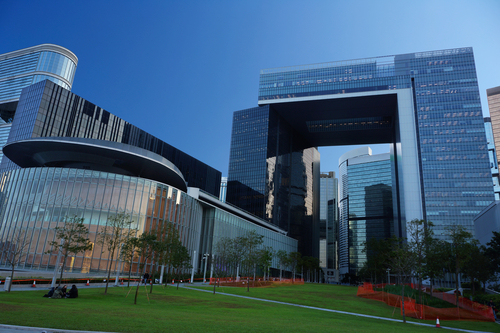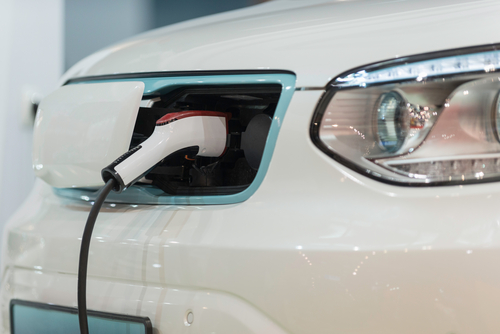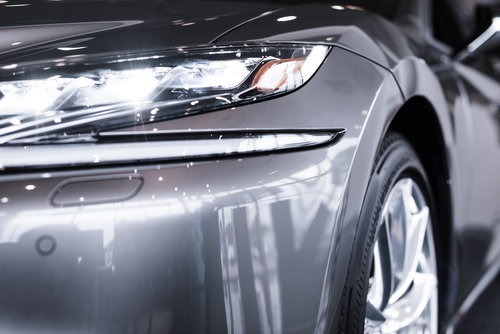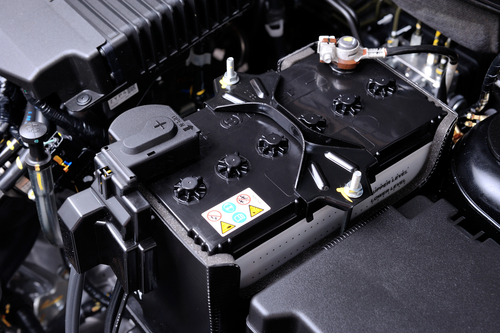Chinese electric carmaker NIO plans to build a Chinese headquarters in Hefei
NIO said that talks have already been held with the local government of Hefei. The city in Anhui province is a center for car. The talks also set out detailed terms of a new round of investment that could raise more than 10 billion yuan (1.4 billion US dollars). NIO also plans to build a Chinese headquarter in Hefei to complement the existing plant and a research and development center. The automaker plans to announce further details as soon as they are available. The planned investment is a welcome cash injection for the struggling and loss-making company, which is one of a dozen other Chinese electric vehicle manufacturers competing with industry leader Tesla.
The market for electric cars in China has grown rapidly in recent years but has been heavily dependent on government subsidies. After a gradual withdrawal of subsidies, sales of vehicles with alternative drive systems fell by around 54 percent in January 2020. According to the Chinese Association of Automobile Manufacturers, the decline is partly due to the effects of the coronavirus, but the figures still fell for the seventh consecutive month.

Discussions on fresh funding for NIO are seen as a positive signal by the Chinese economy and could boost confidence after an extended plant shutdown during the Chinese New Year. NIO was one of eight companies that signed agreements with the Hefei government to strengthen the local economy after the end of the coronavirus crisis. In Shanghai, less affected by the virus, Tesla already reopened its factory on February 10. The Model 3 is manufactured there for the Chinese market and has been delivered to customers since January. Components and vehicles in China require a CCC certificate. The mandatory CCC (China Compulsory Certificate) seal of approval must be visibly affixed to the products. We would be happy to advise you on how to obtain a CCC (China Compulsory Certificate) for your products.
For more information on how CCC certification, the CCC Self-Declaration and voluntary CCAP or CQC certification may affect your company, or for more information about CCC certification in general, the process, and the associated costs, please visit our website and our News Section where you will find current updates twice a week.
Please do not hesitate to contact us for further details and consultation. You can contact us via e-mail, or call us (UK: +44 2071931135, Rest of Europe: +49 69 2713769150, US: +1 773 654-2673).
You can also check out our free CCC-Brochure, which can be downloaded right here as a PDF file or you consult our book (in English) “A Brief Guide to CCC: China Compulsory Certification”, which can be found directly hier on Amazon.
Here you can download our brochure about the CCC Self-Declaration.
Here you can download our brochure about the voluntary CCAP or CQC certification.
Malaysia cooperates with China in the development of electric vehicles
For the purpose of cooperation, 3 separate MoUs were signed by Malaysian and Chinese automotive scientists and the manufacturer Proton. One of them was concluded between the Malaysian Automotive, Robotics and IoT Institute (MARii) and the Chinese Automotive Technology and Research Center (CATARC). The purpose of the agreement is to share knowledge, harmonize technical standards and establish a test center for next-generation vehicles (NxGV).
The second cooperation was agreed between Proton majority owner DRB-Hicom and MARii. The aim is to train scientists and specialists for new technologies in the automotive sector. A further cooperation was announced between CATARC and the car manufacturer Proton. The aim is to enable Proton to use CATARC’s numerous test stands and facilities in China. For CATARC, Malaysia is the third country, after Germany and Japan, in which the research facility is active outside China. Inquiries from reporters regarding the specific investment amount were answered in the negative by MARii Chairman Madani. However, he made it clear that the facilities must be completed by 2023.

Furthermore, there is a draft for a further investment by CATARC together with grants from industry and government funds. Further research and development centres in the fields of Big Data, robotics, IoT and urban planning are under discussion. All these facilities are part of an overall concept for networked mobility, Madani said. His institute MARii has already been able to win over 10 well-known companies for cooperation in the aforementioned areas, and further companies for telematics and from the automotive industry will be added. For the export of vehicle components to China or local production, your company needs a CCC certificate. The Chinese CCC (China Compulsory Certificate) is a system for standardizing product quality, similar to DIN or ISO standards. We would be pleased to advise you in the context of an upcoming CCC certification.
For more information on how CCC certification, the CCC Self-Declaration and voluntary CCAP or CQC certification may affect your company, or for more information about CCC certification in general, the process, and the associated costs, please visit our website and our News Section where you will find current updates twice a week.
Please do not hesitate to contact us for further details and consultation. You can contact us via e-mail, or call us (UK: +44 2071931135, Rest of Europe: +49 69 2713769150, US: +1 773 654-2673).
You can also check out our free CCC-Brochure, which can be downloaded right here as a PDF file or you consult our book (in English) “A Brief Guide to CCC: China Compulsory Certification”, which can be found directly hier on Amazon.
Here you can download our brochure about the CCC Self-Declaration.
Here you can download our brochure about the voluntary CCAP or CQC certification.
Car manufacturer Hongqi reaches new sales record
Hongqi tripled its sales figures compared to 2018, making it China’s first premium car brand with more than 100,000 vehicles sold annually. In addition, the company already achieved its sales figures at the end of December, which were only planned for the coming year. Hongqi launched three new models in 2018: the HS5 and HS7 SUVs and the all-electric E-HS3. These new models made the biggest contribution to sales, with around 33,000 vehicles. Other available models are the H7 and H5 sedans and the long-wheelbase version L5.
Founded in 1958, Hongqi was known in the past for state cars of the Chinese party leadership. The brand fell into oblivion and sales figures were negligible until 2018 when a new start was dared under the umbrella of the FAW Group. Together with FAW as a renowned manufacturer, the Hongqi brand wants to rise again to the number 1 in China. Chairman Liuping plans to launch a total of 17 new models by 2025, both sedans and SUVs. The sales figures show 300,000 units by 2025 and 500,000 in 2035, with analysts highlighting Hongqi’s good performance this year, when the general market declined by 9.1 percent.

Hongqi was also present at numerous trade shows. At CES 2019 in Las Vegas, the vision of future cockpits as well as self-driving vehicles and electric drives were shown. Two concept studies were presented at the Frankfurt IAA in September 2019. The S9 super sports car reaches a top speed of 400 km/h and an acceleration from 0 to 100 km/h within 1.9 seconds. It is equipped with a newly developed V8T hybrid engine with a maximum system output of 1,400 HP. Another vehicle that was presented is the E115 SUV. This electrically powered off-road vehicle with four-wheel drive has a range of 600 km on one battery charge and can accelerate to 100 km/h in less than four seconds.
To keep pace with technological development, Hongqi has entered into partnerships with companies such as Huawei, Intel and Baidu and collaborates with institutions such as Jilin University. In order to export products to China, many automotive and electronics products require mandatory CCC certification. We will be happy to advise you on the procedure and obtaining a CCC (China Compulsory Certificate) certificate.
For more information on how CCC certification, the CCC Self-Declaration and voluntary CCAP or CQC certification may affect your company, or for more information about CCC certification in general, the process, and the associated costs, please visit our website and our News Section where you will find current updates twice a week.
Please do not hesitate to contact us for further details and consultation. You can contact us via e-mail, or call us (UK: +44 2071931135, Rest of Europe: +49 69 2713769150, US: +1 773 654-2673).
You can also check out our free CCC-Brochure, which can be downloaded right here as a PDF file or you consult our book (in English) “A Brief Guide to CCC: China Compulsory Certification”, which can be found directly hier on Amazon.
Here you can download our brochure about the CCC Self-Declaration.
Here you can download our brochure about the voluntary CCAP or CQC certification.
Battery Registration for China required for TESLA as they set partnership with Chinese battery supplier CATL
Tesla’s partnership with the Chinese battery manufacturer Contemporary Amperex Technology Co Ltd. (CATL) for its Model 3, which is manufactured in China, illustrates Tesla’s strategy to become the leader in electric cars in the world’s largest automotive market. CATL is expected to supply Tesla with a so-called ‘zero cobalt’ lithium iron phosphate (LFP) battery. This in turn will be installed by the car manufacturer in the Model 3, which is produced entirely in China and is offered exclusively on the domestic market.
The new LFP batteries are estimated to be a double-digit percentage cheaper than the batteries previously used by Tesla in the USA. The consulting firm Benchmark Mineral Intelligence, which specializes in the cost analysis of lithium-ion batteries, estimates a cost saving of more than 25 percent compared to the batteries currently used in Model 3. For its US production, Tesla uses nickel-cobalt-aluminum (NCA) batteries that contain the rare metal cobalt. The main deposits of cobalt are in the Democratic Republic of Congo and Zambia, where there have been past reports of human rights abuses, child labour and the involvement of military personnel in mining the ore. This is why Tesla’s Chairman Elon Musk wants to avoid the use of cobalt in batteries in the future. The partnership with CATL, who require no or very little cobalt for the production of battery cells, is therefore an important step for Tesla.

CATL also owns other technologies, including 70 patents, which improve the energy density and safety of LFP batteries. It is stated that the energy density has been increased by 10 to 15 percent, the parts used for battery cells have been reduced by 40 percent and the batteries can now be made 15 to 20 percent more compact. In addition to the reduced costs for Tesla, the partnership with a local battery supplier also means an increase in productivity for the new gigafactory near Shanghai. Tesla expects to produce around 3,000 vehicles per week at full capacity. The Chinese Model 3 is slightly different from the US model in order to save costs and is adapted to the needs of Chinese customers. Due to the production of the Tesla Model 3 in China and its high demand for electric cars, analysts expect that this could massively increase sales and profits. Drive batteries for electric vehicles are subject to voluntary CQC certification in China. This is to ensure that the batteries meet safety standards. Contrary to CQC certification, the application of a traceability code according to the Chinese GB standard is mandatory to track the life cycle of a battery and to recycle it at the end of its life. We would be pleased to advise you on CQC certification and GB standards for products exported to China.
For more information on how CCC certification, the CCC Self-Declaration and voluntary CCAP or CQC certification may affect your company, or for more information about CCC certification in general, the process, and the associated costs, please visit our website and our News Section where you will find current updates twice a week.
Please do not hesitate to contact us for further details and consultation. You can contact us via e-mail, or call us (UK: +44 2071931135, Rest of Europe: +49 69 2713769150, US: +1 773 654-2673).
You can also check out our free CCC-Brochure, which can be downloaded right here as a PDF file or you consult our book (in English) “A Brief Guide to CCC: China Compulsory Certification”, which can be found directly hier on Amazon.
Here you can download our brochure about the CCC Self-Declaration.
Here you can download our brochure about the voluntary CCAP or CQC certification.


